Filter by
From Grain to Pixel: The Archival Life of Film in Transition
Film is in a state of rapid change, with the transition from analog to digital profoundly affecting not just filmmaking and distribution, but also the theoretical conceptualization of the medium film and the practice of film archiving. New forms of digital archives are being developed that make use of participatory media to provide a more open form of access than any traditional archive has off…
- Edition
- -
- ISBN/ISSN
- 9789089641397
- Collation
- -
- Series Title
- -
- Call Number
- 791.43 FOS f
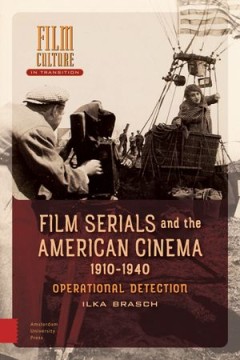
Film Serials and the American Cinema, 1910-1940
Before the advent of television, cinema offered serialised films as a source of weekly entertainment. This book traces the history from the days of silent screen heroines to the sound era's daring adventure serials, unearthing a thriving film culture beyond the self-contained feature. Through extensive archival research, Ilka Brasch details the aesthetic appeals of film serials within their con…
- Edition
- -
- ISBN/ISSN
- 9789048537808
- Collation
- -
- Series Title
- -
- Call Number
- 791.43 BRA f
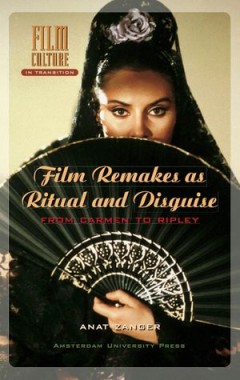
Film Remakes as Ritual and Disguise
The first book-length account of the symbolic chains that link remakes and explain their disguises, Film Remakes as Rituals and Disguise is also the first book to explore how and why these stories are told. Anat Zanger focuses on contemporary retellings of three particular tales-Joan of Arc, Carmen, and Psycho-to reveal what she calls the remake's "rituals of disguise." Joan of Arc, Zanger demo…
- Edition
- -
- ISBN/ISSN
- 9789053567845
- Collation
- -
- Series Title
- -
- Call Number
- 791.43 ZAN f
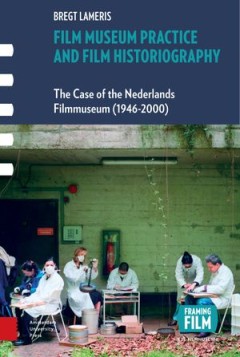
Film Museum Practice and Film Historiography: The Case of the Nederlands Film…
Rich in detail, this is a study of the interrelationships between film historical discourse and archival practices. Exploring the history of several important collections from the EYE Film Museum in Amsterdam, Bregt Lameris shows how archival films and collections always carry the historical traces of selection policies, restoration philosophies, and exhibition strategies. The result is a compe…
- Edition
- -
- ISBN/ISSN
- 9789048526741
- Collation
- -
- Series Title
- -
- Call Number
- 791.43 LAM l
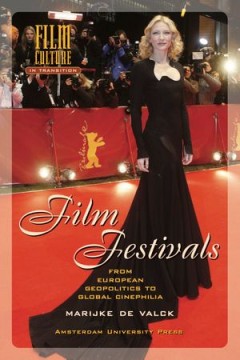
Film Festivals: From European Geopolitics to Global Cinephilia
Film festivals are hugely popular events that attract lovers of cinema worldwide. Focusing on the world's most famous festivals - Cannes, Berlin, Venice and Rotterdam - Film Festivals tells the story of a phenomenon that began in the midst of geopolitical disputes in war-torn Europe. De Valck shows how festivals turned the odds into advantages and developed into a successful global network. Tak…
- Edition
- -
- ISBN/ISSN
- 9789053561928
- Collation
- -
- Series Title
- -
- Call Number
- 791.43 VAL f
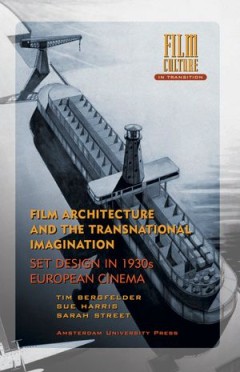
Film Architecture and the Transnational Imagination: Set Design in 1930s Euro…
Film Architecture and the Transnational Imagination presents for the first time a comparative study of European film set design in the late 1920s and 1930s; based on a wealth of designers' drawings, film stills and archival documents, the book offers a new insight into the development and significance of trans-national artistic collaboration during this period. European cinema from the late 192…
- Edition
- -
- ISBN/ISSN
- 9789053569801
- Collation
- -
- Series Title
- -
- Call Number
- -
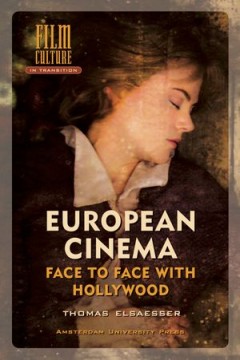
European Cinema: Face to Face with Hollywood
In the face of renewed competition from Hollywood since the early 1980s and the challenges posed to Europe's national cinemas by the fall of the Wall in 1989, independent filmmaking in Europe has begun to re-invent itself. European Cinema: Face to Face with Hollywood re-assesses the different debates and presents a broader framework for understanding the forces at work since the 1960s. These in…
- Edition
- -
- ISBN/ISSN
- 9789053565940
- Collation
- -
- Series Title
- -
- Call Number
- 791.43 ELS e
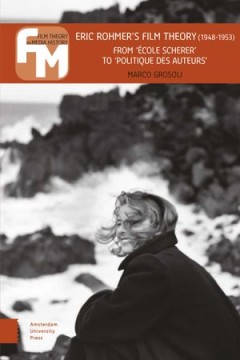
Eric Rohmer's Film Theory (1948-1953): From 'école Scherer' to 'politique de…
In the 1950s, a group of critics writing for Cahiers du Cinéma launched one of the most successful and influential trends in the history of film criticism: auteur theory. Though these days it is frequently usually viewed as limited and a bit old-fashioned, a closer inspection of the hundreds of little-read articles by these critics reveals that the movement rested upon a much more layered and …
- Edition
- -
- ISBN/ISSN
- 9789048537037
- Collation
- -
- Series Title
- -
- Call Number
- 791.43 GRO e
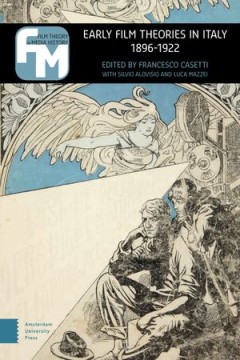
Early Film Theories in Italy, 1896-1922
This collection is the first to bring together scholars to explore the ways in which various people and groups in Italian society reacted to the advent of cinema. Looking at the responses of writers, scholars, clergymen, psychologists, philosophers, members of parliament, and more, the pieces collected here from that period show how Italians developed a common language to describe and discuss t…
- Edition
- -
- ISBN/ISSN
- 9789048527106
- Collation
- -
- Series Title
- -
- Call Number
- 791.43 MAZ m
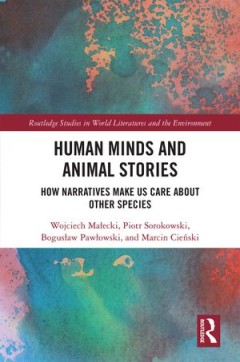
Human Minds and Animal Stories
The power of stories to raise our concern for animals has been postulated throughout history by countless scholars, activists, and writers, including such greats as Thomas Hardy and Leo Tolstoy. This is the first book to investigate that power and explain the psychological and cultural mechanisms behind it. It does so by presenting the results of an experimental project that involved thousands …
- Edition
- -
- ISBN/ISSN
- 0429590059
- Collation
- -
- Series Title
- -
- Call Number
- -
 Computer Science, Information & General Works
Computer Science, Information & General Works  Philosophy & Psychology
Philosophy & Psychology  Religion
Religion  Social Sciences
Social Sciences  Language
Language  Pure Science
Pure Science  Applied Sciences
Applied Sciences  Art & Recreation
Art & Recreation  Literature
Literature  History & Geography
History & Geography